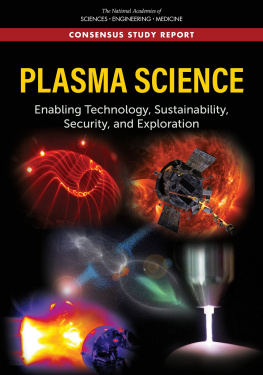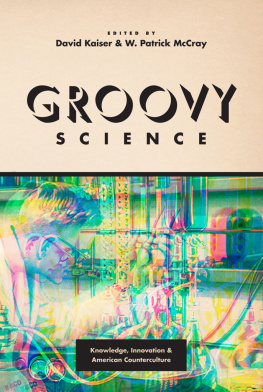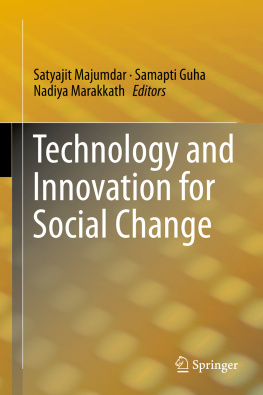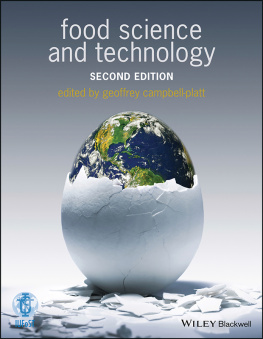COOPERATIVE INNOVATION
Science and Technology Policy
World Scientific Series in R&D Management
Print ISSN: 2591-7498
Online ISSN: 2591-7501
Series Editor: Tugrul U Daim (Portland State University, USA)
Published
Vol. 3Cooperative Innovation: Science and Technology Policy
by Frederick Betz
Vol. 2Technology Roadmapping
edited by Tugrul U Daim, Terry Oliver and Rob Phaal
Vol. 1Managing Technological Innovation: Tools and Methods
edited by Tugrul U Daim
World Scientific Series in R&D Management Vol.3
COOPERATIVE INNOVATION
Science and Technology Policy
Frederick Betz
Portland State University, USA
Published by
World Scientific Publishing Co. Pte. Ltd.
5 Toh Tuck Link, Singapore 596224
USA office: 27 Warren Street, Suite 401-402, Hackensack, NJ 07601
UK office: 57 Shelton Street, Covent Garden, London WC2H 9HE
Library of Congress Cataloging-in-Publication Data
Names: Betz, Frederick, 1937 author.
Title: Cooperative innovation : science and technology policy / Frederick Betz
Description: New Jersey : World Scientific, [2019] | Series: World Scientific series in R&D management | Includes bibliographical references.
Identifiers: LCCN 2018046973 | ISBN 9789813238695 (alk. paper)
Subjects: LCSH: Technological innovations--Government policy. | Technology and state. | Science and state. | Research, Industrial--Government policy. | Research--Government policy. | Academic-industrial collaboration.
Classification: LCC HC79.T4 B48 2019 | DDC 338.9/26--dc23
LC record available at https://lccn.loc.gov/2018046973
British Library Cataloguing-in-Publication Data
A catalogue record for this book is available from the British Library.
Copyright 2019 by World Scientific Publishing Co. Pte. Ltd.
All rights reserved. This book, or parts thereof, may not be reproduced in any form or by any means, electronic or mechanical, including photocopying, recording or any information storage and retrieval system now known or to be invented, without written permission from the publisher.
For photocopying of material in this volume, please pay a copying fee through the Copyright Clearance Center, Inc., 222 Rosewood Drive, Danvers, MA 01923, USA. In this case permission to photocopy is not required from the publisher.
For any available supplementary material, please visit
https://www.worldscientific.com/worldscibooks/10.1142/10951#t=suppl
Desk Editors: Nur Izdihar Binte Ismail/Amanda Yun
Typeset by Stallion Press
Email:
Printed in Singapore
Preface
To fully understand why some nations are more successful in innovation than others, one must examine the structure and process of knowledge creation and use the science & technology policy of a nation. Knowledge of nature is discovered by science, and knowledge of the manipulation of nature is invented by technology. Technology is embedded into commercial products/services by industrial design. National innovation requires progress both in science and technology and also in economy.
Research cooperation for innovation is necessary, since science, technology, and production are performed in different sectors of a nation. Universities perform most science, and science discovers nature. Government supports most of the research in universities, and therefore is the principal sponsor of science. Industry develops most technology and commercializes technology in economically useful products/services. The structure and process of knowledge in a nation thus requires (1) the creation of knowledge in science, (2) the translation of science into technology, and (3) the design of technology into commercialization of utility.
National innovation consists of discovery, invention, and commercialization. Research cooperation is necessary for a competitive science & technology policy.
Macro-innovation, innovation at the national level, is a complicated picture depicting the proper ways that government-university-industry can cooperate to advance knowledge and economically benefit from innovation. We will review the special programs in science & technology policy that have proven beneficial in fostering research cooperation for national competitiveness, as depicted in the following figure.
Figure. Types of Cooperative Research Programs of Government S&T Policy.
In this book, we will review these programs in detail, with historical case studies.
Science Cooperation Program to ensure government funding of university science for national scientific excellence.
R&D Cooperation CRADA Program to facilitate science and technology transfer from government science into industrial technology.
Development Cooperation Fraunhofer Program to facilitate university research assistance to innovative product development (including small businesses).
Targeted-Basic Research Cooperation Program to facilitate university and industrial research cooperation toward Next Generation Technologies.
Small Business Innovation Research to provide government research support to small businesses in the first stages of innovation.
About the Author
 Frederick Betz
Frederick Betz is occasionally Adjunct Professor in the Department of Management of Engineering and Technology, Portland State University, Portland, Oregon, USA. He received a PhD in physics from the University of California at Berkeley, but subsequently changed fields to operations research. He has taught at graduate business schools in several universities and served as a program officer in the U.S. National Science Foundation. He has recently taught as an adjunct or visiting professor at Portland State University in Oregon, Nile University in Egypt and Korea University and SUNY Korea in South Korea. He has published in the fields of management, philosophy of science, management of technology, and political economics. His recent books in print include
Stability in International Finance Application of Disequilibrium Theory (2016),
Strategic Thinking Vision, Competence, & Integrity (2015),
Modeling Methodology For Sustainable Development (2015),
Innovation and Global Competition: The Case of Korea (Co-authored with Youngrak Choi, Whasik Min, Won Koo Park, and Dong Woo Shin) (2014),
Why Bank Panics Matter (2013),
Societal Dynamics (2011),
Managing Science (2010), and
Managing Technological Innovation (3rd Ed.) (2010).
Contents
CHAPTER 1
Innovation and National Competitiveness
Introduction
Since the industrial revolution in the late 1700s, innovation has been the driving force behind economic growth and advancement in the military might of nations; namely, USA, UK, and a number of European countries. The emergence of science in the 1600s created the environment for the development of technology to power the world ahead for the next three centuries. Yet, one problem persists; very few nations have truly mastered the art to manage innovation, which is the manner to institutionalize the process to advance science and technology, to accelerate economic growth and empower the government.















 Frederick Betz is occasionally Adjunct Professor in the Department of Management of Engineering and Technology, Portland State University, Portland, Oregon, USA. He received a PhD in physics from the University of California at Berkeley, but subsequently changed fields to operations research. He has taught at graduate business schools in several universities and served as a program officer in the U.S. National Science Foundation. He has recently taught as an adjunct or visiting professor at Portland State University in Oregon, Nile University in Egypt and Korea University and SUNY Korea in South Korea. He has published in the fields of management, philosophy of science, management of technology, and political economics. His recent books in print include Stability in International Finance Application of Disequilibrium Theory (2016), Strategic Thinking Vision, Competence, & Integrity (2015), Modeling Methodology For Sustainable Development (2015), Innovation and Global Competition: The Case of Korea (Co-authored with Youngrak Choi, Whasik Min, Won Koo Park, and Dong Woo Shin) (2014), Why Bank Panics Matter (2013), Societal Dynamics (2011), Managing Science (2010), and Managing Technological Innovation (3rd Ed.) (2010).
Frederick Betz is occasionally Adjunct Professor in the Department of Management of Engineering and Technology, Portland State University, Portland, Oregon, USA. He received a PhD in physics from the University of California at Berkeley, but subsequently changed fields to operations research. He has taught at graduate business schools in several universities and served as a program officer in the U.S. National Science Foundation. He has recently taught as an adjunct or visiting professor at Portland State University in Oregon, Nile University in Egypt and Korea University and SUNY Korea in South Korea. He has published in the fields of management, philosophy of science, management of technology, and political economics. His recent books in print include Stability in International Finance Application of Disequilibrium Theory (2016), Strategic Thinking Vision, Competence, & Integrity (2015), Modeling Methodology For Sustainable Development (2015), Innovation and Global Competition: The Case of Korea (Co-authored with Youngrak Choi, Whasik Min, Won Koo Park, and Dong Woo Shin) (2014), Why Bank Panics Matter (2013), Societal Dynamics (2011), Managing Science (2010), and Managing Technological Innovation (3rd Ed.) (2010).